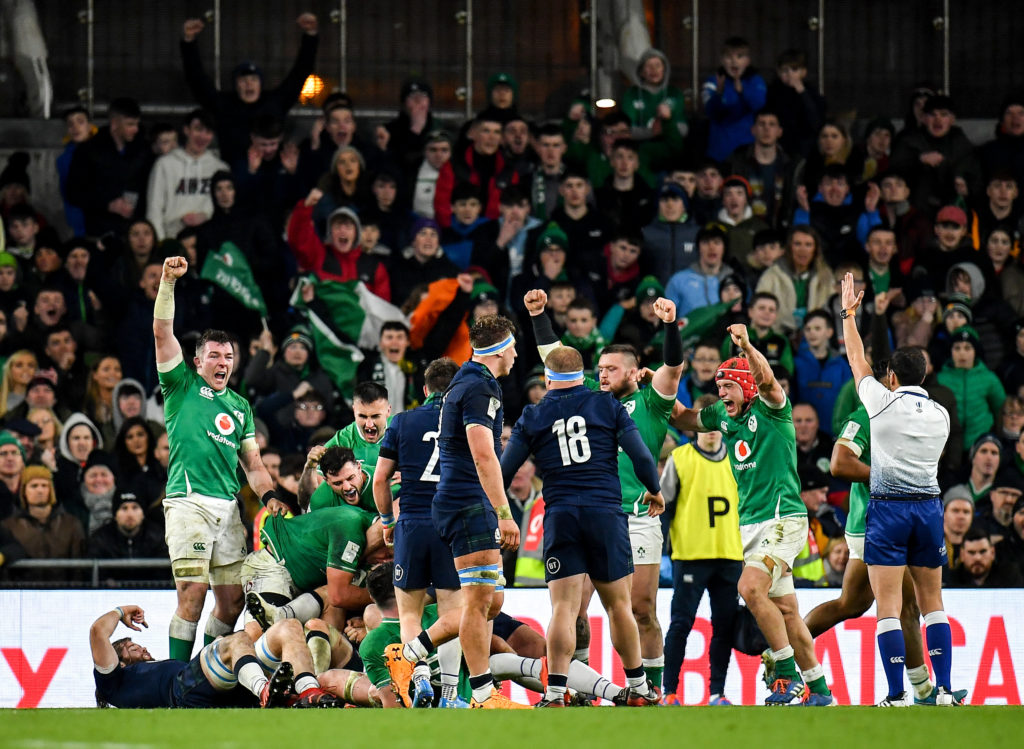Rugby needs to implement a decision review system sooner rather than later, writes JON CARDINELLI.
The decision review system (DRS) has changed cricket for the better since its introduction to the international game in 2008. Indeed, where would the sport be if players didn’t have the opportunity to challenge an umpire’s call? How many innings, games and championships may have taken a different course without that system in place?
There’s been a lot of talk about introducing a similar system to rugby. We’ve seen the white-card project trialled in South Africa before. Earlier this week, former Test referee Jonathan Kaplan called for the introduction of a ‘captain’s challenge’ that would give teams two opportunities in a game – one per half – to appeal poor decisions.
KAPLAN: Bring in a captain’s challenge
It does get one thinking about a few close contests that may have ended differently had this system been in place. If the All Blacks had this option in the 2007 World Cup quarter-final, they may have asked for a review of the forward pass that led to a decisive try for France. If the Sharks had the power, they would have called on the TMO to review the turnover that allowed the Vodacom Bulls to score the winning try in the 2007 Super 14 final.
Les Bleus weren’t happy after the 2011 World Cup final in New Zealand. What if they had the option to review a particular decision during the dying stages when they were camped in the All Blacks’ 22? What if the TMO found that the All Blacks had impeded at the breakdown – as many believe they had – and given France the opportunity to kick for goal and win the tournament?
Ireland produced an incredible defensive effort to repel Scotland in the dying stages of the recent game in Dublin. It could, however, be argued that they were off their feet more than once during that period of play. What if Scotland asked the TMO to review that? The game may have ended differently and they may have ended the round in the top half of the Six Nations standings.
There are plenty more examples across competitions like Super Rugby. Games are being shaped by dubious referee decisions. Some are getting it wrong over the course of the contest, while some are getting it wrong in that crucial period right before full time and the result is swinging on one poor call.
READ: Super Rugby referees (Round 2)
Kaplan was at the coalface of international rugby for 70 Tests. He understands the pressures associated with the job and is well placed to comment on the current men in the middle. As he mentions in his column in the Telegraph, a captain’s challenge would ensure that the right decision is made. It would also reveal which referees are getting the big calls right.
Would this system be abused? Cricket captains call for a review when they are confident about their challenge. Occasionally, they call for a review when they are desperate.
Rugby captains may follow suit, but they won’t have an unlimited number of reviews at their disposal. As is the case with cricket, the referee’s decision would have to be clearly and obviously wrong to be overturned.
It would be interesting to see if all of the referee’s decisions would be fair game. Officials are currently encouraged to blow the breakdown as they see fit, with none looking to sanction every single offence in that area. Rugby wants to sell itself as a dynamic sport but this policy of picking and choosing which laws to enforce at the breakdown does nothing for the integrity of the game.
If a penalty is awarded, for example, to an attacking team at a ruck on the tryline, would the defending team have the opportunity to query it?
So often we hear coaches and players talking about a particular breakdown penalty that could have gone either way – the penalty won by Duane Vermeulen in the Springboks’ narrow win against the All Blacks in 2014 comes to mind. I suppose the TMO may, in that instant, be reluctant to disagree with the on-field referee as it may not fall into the ‘clear and obvious’ category.
We’ve seen how the DRS has its limitations in cricket, and I’m sure that rugby would also have to accept a few imperfections. That said, rugby desperately needs a system like this to ensure that the big mistakes are challenged and overturned.
It does nobody any good when a referee apologises a week after making an error in a big Test. Players must have the option to challenge that call on the day, and ensure that their own strengths or weaknesses – rather than a particular official’s – decide the outcome of a contest.
Have you signed up to our newsletter? Click here to join the thousands of readers who are part of our newsletter community.
Photo: Seb Daly/Sportsfile via Getty Images





